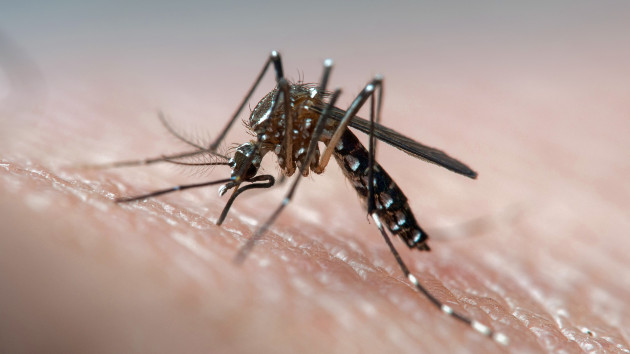(NEW YORK) — It’s time to say “bye-bye” to bug bites.
As summer is still in full effect, so are lots of bugs that are ready to bite or sting exposed skin. Whether you are headed on a nature walk or out for a pool dip, everything from mosquitos and ticks to bees and other insects are ready to pounce.
But there are ways to prevent and treat your skin against some of those pesky stings, itches, bumps or marks left behind.
ABC News’ Good Morning America consulted with board-certified medical and cosmetic dermatologist Dr. DiAnne Davis, as well as board-certified pediatrician and expert on Bug Bite Thing’s medical advisory board Dr. Mona Amin to find out how to prevent and treat bug bites this season.
Are there any key indicators that would let someone know that they have a bug bite versus other skin irritations? How are you able to tell the difference?
Amin: With bug bites, you will usually see a lump or bump of redness and surrounding irritation — this is generally where the insect bit you and a telltale sign. Some people report seeing or feeling an insect bite them and then noticing the rash develop. Others have seen the rash begin as a hive, where the skin surrounding the bite looks red and puffy — our bodies create a histamine response to the irritant, which is the saliva of the insect.
What’s the first thing you should do when you have identified that you have a bug bite?
Davis: I know this is easier said than done, but the first thing you should try to do is not scratch the bug bite. For bites that itch, apply an ice pack or an over-the-counter anti-itch cream, such as hydrocortisone. Another option is to take an over-the-counter oral antihistamine.
To reduce swelling, apply an ice pack to the bite. If it’s a painful bite, take an over-the-counter painkiller, such as acetaminophen or ibuprofen.
What’s a top product you recommend when treating a bug bite and why?
Amin: I recommend using Bug Bite Thing immediately after you notice the bite as it will reduce the itching, stinging and swelling within seconds. The product only uses suction and is chemical-free, making it a safe option for people of all ages, including infants and toddlers.
How do you go about getting rid of the sting, itch or pain associated with any bug bites or stings?
Davis: Topical steroids, which also encompass over-the-counter anti-itch creams, can really help to ease the inflammation that occurs with bug bites and reduces the itching.
What are some best practices to help ease inflammation caused by bug bites?
Amin: The best thing is to minimize scratching as soon as you see the bite. When we scratch our skin, this leads to more inflammation. More inflammation leads to more scratching. It’s what we call the “itch-scratch” cycle. Using a cool compress can also help ease inflammation after a bite.
Are most bug bites treatable at home? When is it necessary to seek professional help?
Davis: If you experience any serious symptoms after a bug bite, such as a rash, fever, body aches, difficulty breathing, chest pain, swollen lips, tongue, and/or face, dizziness, vomiting, or a headache, contact your doctor or a board-certified dermatologist immediately. Make sure you tell the doctor about your recent bite so that they can examine you for a transmitted disease.
Copyright © 2022, ABC Audio. All rights reserved.












